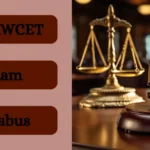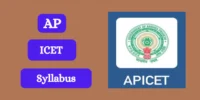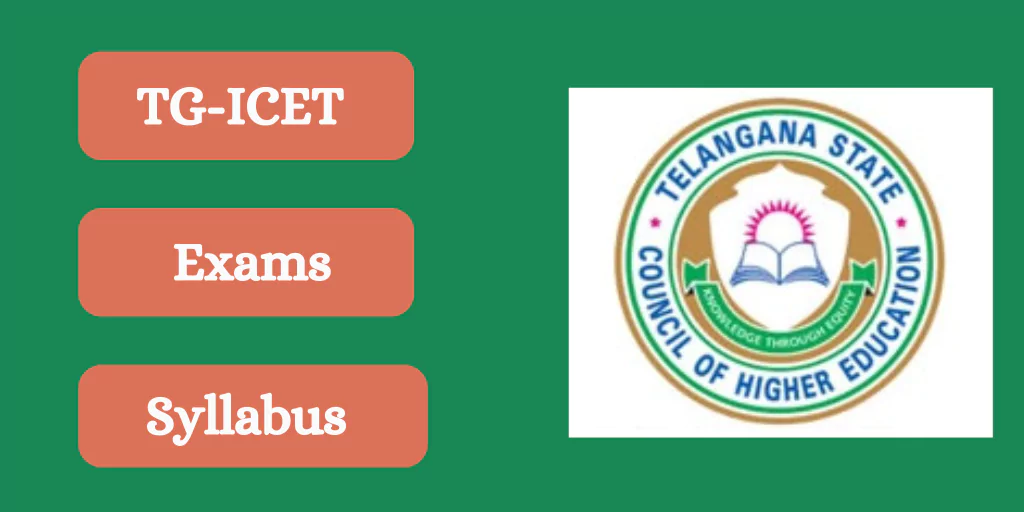Recently updated on January 30th, 2025 at 02:46 pm
The Andhra Pradesh Post Graduate Engineering Common Entrance Test (AP PGECET) is an entrance test for Andhra Pradesh’s postgraduate engineering programs such as M.Tech, M.E., and M.Pharm. The AP PGECET syllabus normally covers a wide range of courses related to the engineering discipline for which you are applying. Here is a full description of the general syllabus, organized by major engineering fields.
General structure:
1. Mathematics.
2. Engineering subject-specific topics.
1. Mathematics:
- Linear algebra: matrices, determinants, eigenvalues, eigenvectors, and linear equation systems
- Calculus: limits, continuity, differentiation, integration, and differential equations.
- Probability and Statistics: Distributions, Means, Variances, and Hypothesis Testing
- Numerical Methods: Numerical Solutions of Equations, Numerical Integration and Differentiation, and Differential Equations
- Complex Variables: Complex Functions, Analytic Functions, Cauchy-Riemann Equations, Residue Theorem
2. Engineering Subject-Specific Topics:
Syllabuses vary by discipline. Here are some common engineering streams and their corresponding subjects.
1. Computer Science and Engineering, or CSE:
- Data Structures: Data structures include arrays, stacks, queues, linked lists, trees, and graphs.
- Algorithms: Algorithms include sorting, searching, graph algorithms, and dynamic programming.
- Computer networks: OSI Model, TCP/IP Protocols, and Network Security.
- Operating Systems: Process Management, Memory Management, and File System
- Database management systems: SQL, normalization, and ER models.
- Software Engineering: The Software Development Life Cycle, Design, and Testing
2. Electrical and communication engineering (ECE):
- Circuit Theory: Basic Electrical Circuits, Thevenin and Norton Theorems, and AC Circuits
- Signals and Systems: Time and Frequency Domain Analysis, The Sampling Theorem, Filters
- Electronic Devices: Diodes, Transistors, and Amplifiers
- Digital electronics: logic Gates, Boolean Algebra, Flip-Flops, Counters
- Communication Systems: Analog and Digital Communication, Modulation Techniques, Communication Protocols
3. Electric Engineering:
- Electrical Circuits: AC and DC, Network Theorems, and Circuit Analysis
- Electromagnetic Fields: Maxwell’s Equations, Transmission Lines and Electromagnetic Waves
- Control Systems: Feedback Control, Stability Analysis, and System Design
- Power Systems: Power Generation, Transmission, Distribution, and System Protection.
- Machines and drives: AC and DC motors, transformers, and power electronics.
4. Mechanical engineering:
- Engineering mechanics: statics, dynamics, kinematics, and friction.
- Thermodynamics: Thermodynamic laws, heat engines, and refrigeration.
- Fluid Mechanics: Fluid Properties, Dynamics, and Statics.
- Manufacturing processes: casting, welding, machining, and moulding.
- Material strength: stress, strain, deformation, and bending moments.
5. Civil Engineering:
- Structure Analysis: Beams, Trusses, Frames, and Stress Analysis
- Concrete Technology: Properties, Mix Design, and Reinforcement
- Soil Mechanics: Soil properties, classification, and compaction.
- Surveying: Measurement Techniques, Leveling, and Theodolite Surveying.
- Transportation Engineering: Traffic Engineering, Road Design, and Highway Planning
6. Chemical engineering:
- Chemical reaction engineering: reaction kinetics, reactor design, and catalysis.
- Process Calculations: Material and Energy Balances
- Fluid Mechanics: Flow in Pipes, Pumps, and Compressors
- Heat and mass transfer: conduction, convection, radiation, and diffusion.
- Chemical Technology: Process Design and Plant Economics.
7. Aerospace engineering:
- Aerodynamics: Fluid flow, airfoil theory, lift, and drag.
- Propulsion: Jet engines, rocket propulsion, and propeller theory.
- Structural Mechanics: Aircraft Structures, Material Strength and Load Analysis
- Flight mechanics: Aircraft performance and stability, Control
- Space Technology: Orbital Mechanics, Spacecraft Design, Satellite Communication
Exam Format:
- Mostly Multiple-Choice Questions.
- Duration: Usually two hours.
- Number of questions: Approximately 120.
Preparation Tips:
- Review past Papers: Examine past years’ question papers to get a sense of the exam format and question kinds.
- Study Guides: Use textbooks and study guides tailored to your technical speciality.
- Mock Tests: Use mock tests to improve your time management and problem-solving abilities.
This is a general outline; for the most accurate and up-to-date syllabus, please visit the official AP PGECET website or contact the examination administration.
Conclusion
AP PGECET syllabus is critical for successfully studying for the exam and obtaining a spot in a postgraduate engineering program. Furthermore, by becoming acquainted with the important concepts in many engineering disciplines—such as Mathematics, Computer Science, Electronics, Electrical, Mechanical, Civil, Chemical, and Aerospace—you may develop a focused study plan that tackles the fundamental aspects of your preferred career. In addition, this approach enhances your understanding and ultimately increases your chances of success in the exam.”







注册获取100 USDT
August 29, 2024I don’t think the title of your article matches the content lol. Just kidding, mainly because I had some doubts after reading the article.
Skapa personligt konto
August 29, 2024Your point of view caught my eye and was very interesting. Thanks. I have a question for you. https://www.binance.info/register?ref=IHJUI7TF